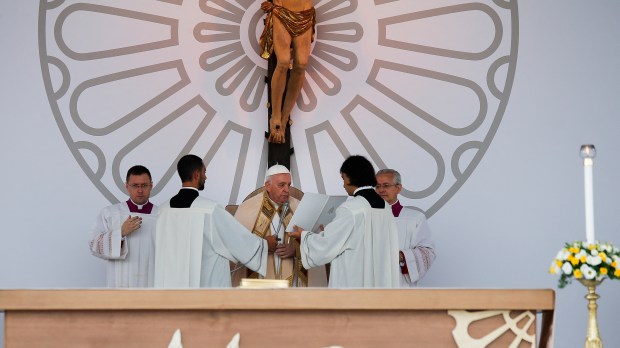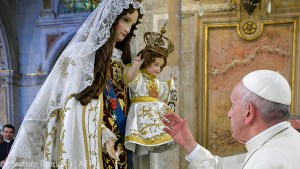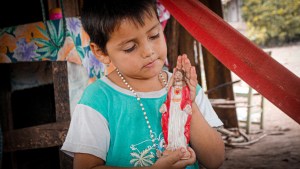Pope Francis closed Italy’s national Eucharistic Congress on Sunday with a car trip — since bad weather made flying by helicopter impossible — to southern Italy. He arrived to Matera after departing bright and early from Rome at 6:30 a.m. The planned welcoming ceremony with political authorities was cancelled.
The Pope stayed only a few hours in Matera, a tourist city known for its famous troglodyte dwellings made of light-colored stone, which have been used as a backdrop for films on the life of Christ, including The Gospel According to Saint Matthew by Pier Paolo Pasolini (1964) and The Passion of the Christ by Mel Gibson (2004). Before leaving, though, he did visit a local soup kitchen and gave his blessing, before heading back via car.
The Holy Father celebrated Mass with the bishops of Italy, focusing his homily on the Eucharist and the Church, in light of the Gospel reading about Lazarus and the rich man.
He reflected how the sad story of Lazarus continues even today, “when we confuse what we are with what we have, when we judge people by the wealth they have, the titles they display, the roles they play or the brand of dress they wear. It is the religionof having and appearing, which often dominates the scene of this world, but in the end leaves us empty-handed: always.”
The Pope noted how “this rich man of the Gospel is not even left with a name. He is no longer anybody at all. On the contrary, the poor man has a name, Lazarus, which means ‘God helps.'”
Even in his condition of poverty and marginalization, he can keep his dignity intact because he lives in relationship with God. In his very name there is something of God and God is the unshakable hope of his life.
The Pope said:
Here then is the permanent challenge that the Eucharist presents to our lives: to worship God and not ourselves. To put him at the center and not the vanity of our self. (…)
“this rich man of the Gospel is not even left with a name. He is no longer anybody at all. On the contrary, the poor man has a name, Lazarus, which means ‘God helps.'”
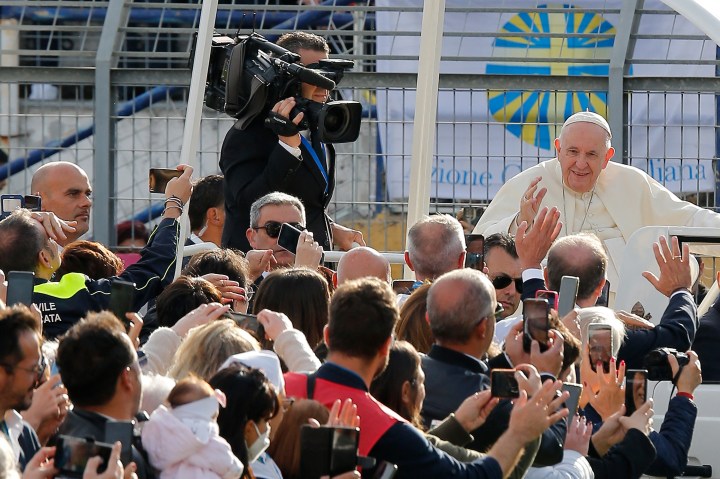
Adoring Jesus in the Eucharist gives a whole new way of looking at ourselves too:
I am not the things I possess or the successes I can achieve; the value of my life does not depend on how much I can show off nor does it diminish when I encounter failures and setbacks. I am a beloved child, each of us is a beloved child; I am blessed by God; he wants to clothe me with beauty and he wants me to be free, he wants me free from all bondage. Let us remember this: those who worship God do not become slaves to anyone: they are free. (…)
Seeing him, seeing others
In worshiping God under the appearance of bread and wine, we hear the call to love our brothers and sisters, the Pope continued.
Our eternal future depends on this present life: if we dig a chasm between us and our brothers and sisters now, we “dig our own grave” for later; if we put up walls against our brothers and sisters now, we remain imprisoned in loneliness and death later.
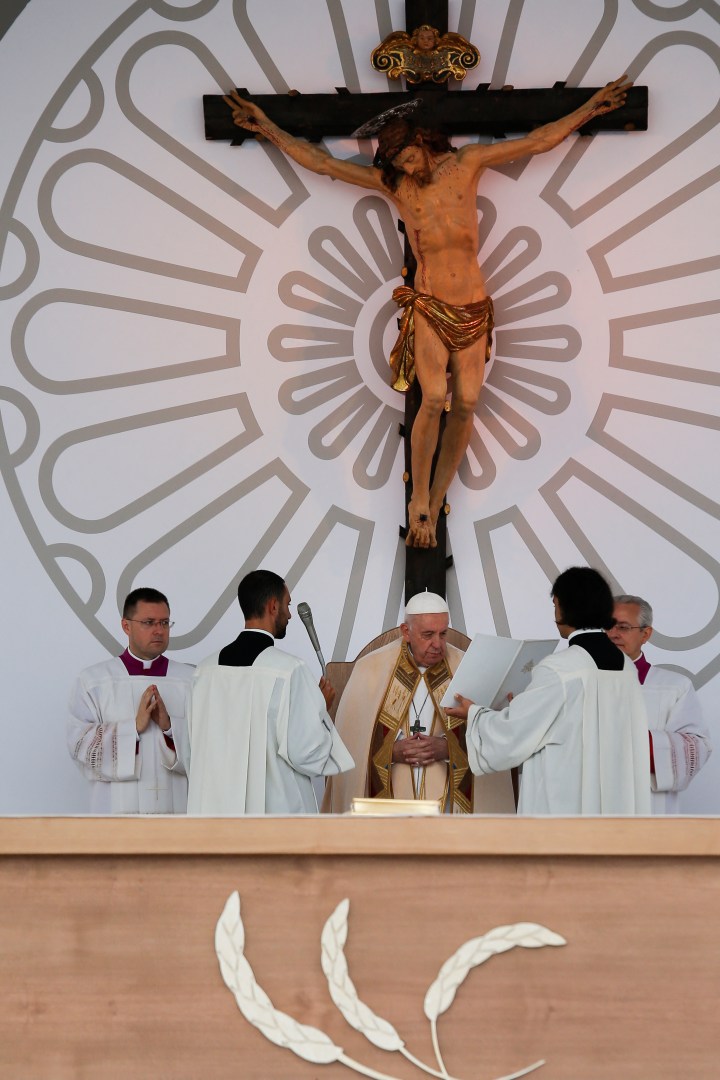
While the story of Lazarus and the rich man continues to be lived out today around the world, the Pope called us to “recognize that the Eucharist is a prophecy of a new world, it is the presence of Jesus who asks us to commit ourselves so that an effective conversion happens: conversion from indifference to compassion, conversion from waste to sharing, conversion from selfishness to love, conversion from individualism to fraternity.”
Brothers and sisters, let us dream. Let us dream of such a Church: a Eucharistic Church. Made up of women and men who break themselves as bread for all those who chew loneliness and poverty, for those who are hungry for tenderness and compassion, for those whose lives are crumbling because of a lack of the good leaven of hope.
A Church that kneels before the Eucharist and worships with awe the Lord present in the bread; but which also knows how to bend down with compassion and tenderness before the wounds of those who suffer, lifting up the poor, wiping away the tears of those who suffer, making itself bread of hope and joy for all. For there is no true Eucharistic worship without compassion for the many “Lazaruses” who even today walk beside us. So many!
… Let us return to Jesus, let us return to the Eucharist.
